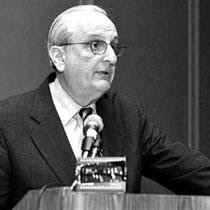We think of biotech companies as bright burning flames that illuminate the runway of our Cargo Cult airport. We think of technologies such as RNAi as the fuel for the flames. Today we are concerned about our Nastech flame.
On January 16, 2008, Novo Nordisk A/S ("Novo") advised Nastech Pharmaceutical Company Inc. that Novo intends to cease development under the feasibility study agreement that the parties entered into in March 2006.
Jan 22 (Reuters) - Nastech Pharmaceutical Company Inc (NSTK.O: Quote, Profile, Research) said it may periodically sell up to $50 million in debt securities, common and preferred stock, warrants and units.
The company said it intends to use the proceeds in part to fund its clinical research and development programs.
Is the end coming soon? How will it end? Will they rebound??? We are watching.
Dedicated to the Cargo Cults of Biology Science, Biotechnology and the Pharmaceutical Industry. "So we really ought to look into theories that don't work, and science that isn't science" Richard Feynman, Cargo Cult Science, From a Caltech commencement address given in 1974
Search This Blog
Tuesday, January 22, 2008
A New Set of Questions for Scientists



Merck and Schering Plough make a drug called Vytorin which combines Zocor, a cholesterol lowering statin, with Zetia, a drug that limits cholesterol's absorption into the body. The ran a trial that was hoped to show that this drug was more effective than Zocor alone in slowing the growth of arterial plaque, which can lead to heart attacks. It wasn't. Vytorin users did see a larger drop ini cholesterol than Zocor users. The decline however didn't result in a improved arterial health. http://www.revolutionhealth.com/news/?id=hd-611715&s_kwcid=vytorin934891494
Shocking news to the scientists and doctors working for the drug companies. They just had no clue this would happen.
Folkmans Delivery Problems

Dr. Judah Folkman was a rising star with several publications and patents on anti-angiogenisis factors. The problem was that no one was able to reproduce his results. From his book "Dr. Folkmans War":
Soon after he began shipping endostatin to researchers around the country, Folkman heard that the drug had become inactive by the time it got to some of the laboratories... The recipients reported that the drugs were having little or no effect on cancer-bearing animals. Folkman was alarmed, needless to say. Any such report carries with it the suggestion that somehow the original research was wrong, or worse, that the results had been embellished.
Folkman and his colleagues soon noticed that the problem seemed to be only with batches that were shipped to distant places. The endostatin being tested in local labs was fine. So the problem, in all likelihood, was in the shipping.Like many drugs or biomedical compounds, the endostatin was being frozen in small plastic vials, packed in dry ice, and was sent out via Fed Ex. Folkman began doing experiments to figure out what might be going wrong. First, they found that the problem was not caused by freezing. When they froze a vial of endostatin, then thawed it, the drug worked normally. So how could transportation hurt it? Hoping to find clues they packed a sample in dry ice, stowed it in the trunk of a car, and drove around Boston with it. Sure enough, when they brought it back into the lab and thawed it, the endostatin didn't work. But why?"
The answer they later came up with was that the dry ice that the drug was packed in bathed the solution in carbon dioxide that had seeped through the vials. The result was the lowering of the pH that inactivated the drug. The solution to the problem was to put the drug into glass vials for shipping. The results of this experiment were not covered in the book.
Wednesday, January 16, 2008
Judah Folkman Is Dead

No sacred cows here. Dr. Juday Folkman died of a heart attack this past week at the airport in Denver. He had a great career in medicine. He was an MD surgeon who had a second career as a PI in a laboratory that explored the involvement of blood vessel in tumor growth.
The CCS does respect Dr. Folkman for offering up a new idea to the establishment and proving that tumors need blood. But then all cells need blood for oxygen and to carry away their waste. This should have been less heresy than it was. The real issue we have with Dr. Folkman however is his role in bringing corporate america into academia.
Dr. Folkman had spent a long time looking for a tumor angiogenesis factor that he decided had to be secreted by the tumor. What he needed was money to grow up large amounts of tumor cells to increase the odds of finding the factor. Monsanto was eager to give him what he wanted. The grant he was given and the terms of the deal swung the academic doors wide open for the corporate world. Their money could now buy access to the usefulness of our university system.
What they wanted of course were patents. They wanted to lay claim to the good work being done, not in their laboratories, but in the superior labs of university scientists. In my next post I will recount a humorous ending to one of Dr. Folkmans corporate sponsored R&D projects. For now I will end with the moral of this story:
The introduction of corporate minds and money into the world of science has been a disaster. In many ways, it began with Dr. Folkmans desire to become a scientist.
Tuesday, January 08, 2008
Is It Dishonest?
Nastech Pharmaceutical Company Inc. (Nasdaq: NSTK) announced today that the U.S. Patent and Trademark Office (USPTO) has issued a Notice of Allowance for U.S. patent application No. 10/976,942, entitled "Phage Displayed Trp Cage Ligands." The patent application has claims that relate to a novel, high-throughput method for identifying peptides which can bind to specific cell types.
"A major obstacle in the development of safe and effective medicines today is the inability to target the therapeutic directly to the cells of interest," stated Steven C. Quay, M.D., Ph.D., Chairman and CEO of Nastech. "The technology of this allowed patent provides Nastech with a process for rapidly identifying peptides that target specific cells. These targeting peptides can then be combined with therapeutics to enhance overall delivery and overcome this key challenge in drug development."
Why then did Nastech sack the Phage Display group in 2006. The Cargo Cult Scientist knew members of this team and the reason they were given was contrary to the above quote from the CEO. It just wasn't working. The question then is simple. Is this dishonest?
In Cargo Cult terms, yes this is dishonest. They stood at the airport and employed their technology. They looked to the sky and no planes came. They sent the staff home. A couple of years later they still talk about the technology. Their government has given them a nod of approval but no planes have come.
"A major obstacle in the development of safe and effective medicines today is the inability to target the therapeutic directly to the cells of interest," stated Steven C. Quay, M.D., Ph.D., Chairman and CEO of Nastech. "The technology of this allowed patent provides Nastech with a process for rapidly identifying peptides that target specific cells. These targeting peptides can then be combined with therapeutics to enhance overall delivery and overcome this key challenge in drug development."
Why then did Nastech sack the Phage Display group in 2006. The Cargo Cult Scientist knew members of this team and the reason they were given was contrary to the above quote from the CEO. It just wasn't working. The question then is simple. Is this dishonest?
In Cargo Cult terms, yes this is dishonest. They stood at the airport and employed their technology. They looked to the sky and no planes came. They sent the staff home. A couple of years later they still talk about the technology. Their government has given them a nod of approval but no planes have come.
Subscribe to:
Posts (Atom)